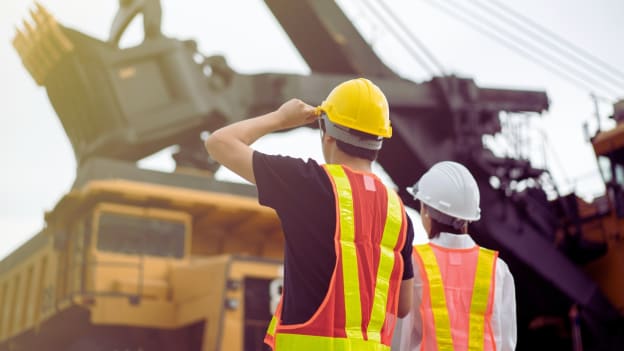Coal India aims to reduce average workforce age to 40 years as it chases growth

Public sector undertaking company Coal India, a behemoth in the global mining sector and the backbone of India's energy security, is working towards reducing the average age of its employees from 47 years to 40 years, according to a top company official.
The country's largest coal producer has been consistently recruiting around a thousand new engineers and management graduates annually as it strives to increase its coal production to 1,000 million tonnes in the next couple of years. This steady influx of young talent is already yielding significant results: the average age of Coal India's over 200,000-strong workforce has dropped from 47 to 43 years in just four years, with a further reduction to a median age of 40 years anticipated over the next five years.
"As Coal India seeks to diversify its business and ramp up coal production to meet the country's ever-increasing energy demands, we need to induct new talent into the organisation. We have been recruiting around a thousand engineers, management and other graduates, which has brought down the average age of the workforce to 43 years from 47 years four years back," Dr Vinay Ranjan, Director of HR at Coal India, told People Matters on the sidelines of 'Great Place to Work' event held recently.
This reduction in average age is not merely a demographic shift; it's a strategic imperative. Coal India primarily focuses on cadre building and recruiting fresh talent at entry levels rather than lateral hiring. With a substantial 30 percent of its senior management slated for retirement over the next 3-5 years, Dr Ranjan projects that this proactive recruitment planning will further bring down the average age to a remarkable 40 years within the next 4-5 years.
"Talent infusion is very, very critical for me," he explains, highlighting the need to maintain a steady flow of new recruits as older employees retire. According to him, the focus then shifts to integrating this new talent, aligning them with the company's culture and business, and fostering their longevity, engagement, and involvement. Giving employees a sense of belongingness and a clear understanding of their critical role in the nation's energy security is paramount.
Beyond its focus on reducing the average age of its workforce, the company is actively promoting underground mining over opencast methods and implementing long, cross-country coal handling plants to replace truck transportation. These initiatives significantly reduce carbon and dust emissions, aligning with national and global goals for green energy.
On the topic of AI replacing jobs, Dr. Ranjan firmly believes that technology will ultimately create more jobs than it destroys, drawing parallels to India's IT revolution in the 1990s. He is certain that for the massive workforce at Coal India, there is "no fear at all" about job losses. With India's rapidly growing economy and projected 10% annual increase in power consumption, coal remains a mainstay of the nation's energy basket for at least the next 10-15 years, requiring continuous induction of new talent.
"The future of jobs in the coal industry looks very promising, and at least for the next 10-15 years, it will be in a growth mode. So, there is no fear of job losses at all. In fact, we need more people to be inducted because the sector will play a very significant role in our nation's energy security," said Dr Ranjan.
To ensure its workforce is future-ready and digitally empowered, Coal India has a formidable training ecosystem. Its Indian Institute of Coal Management in Ranchi serves as a Centre of Excellence for leadership, technology, and behavioural training. Partnerships with premier institutions like IIM Indore, IIM Lucknow, and IIT Dhanbad provide specialised programs on new mining technologies and management development. The company mandates a minimum of 90 hours of training per year for 80 percent of its individual employees, showcasing a robust learning culture.











